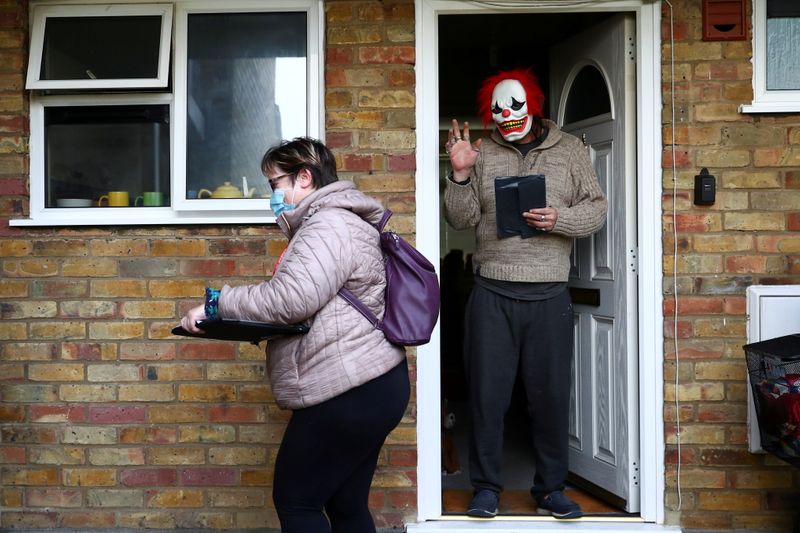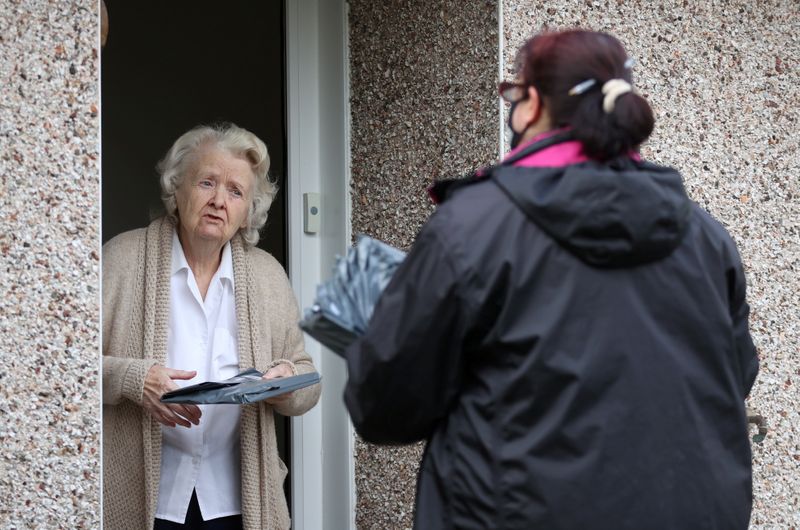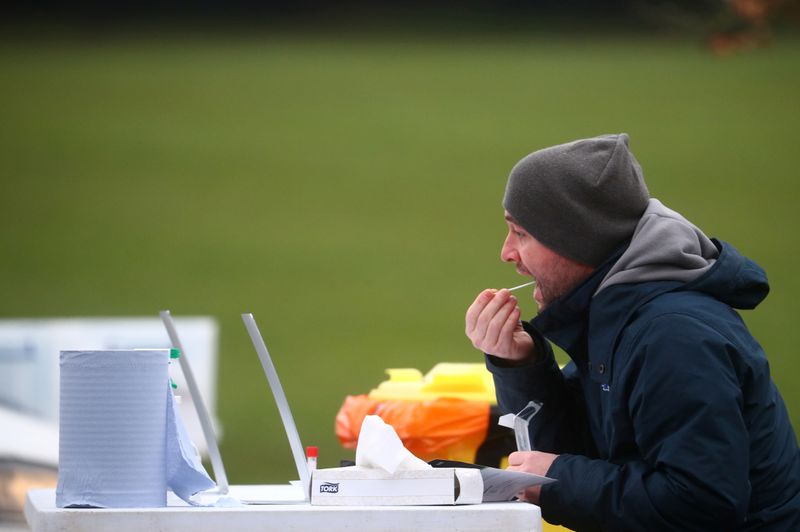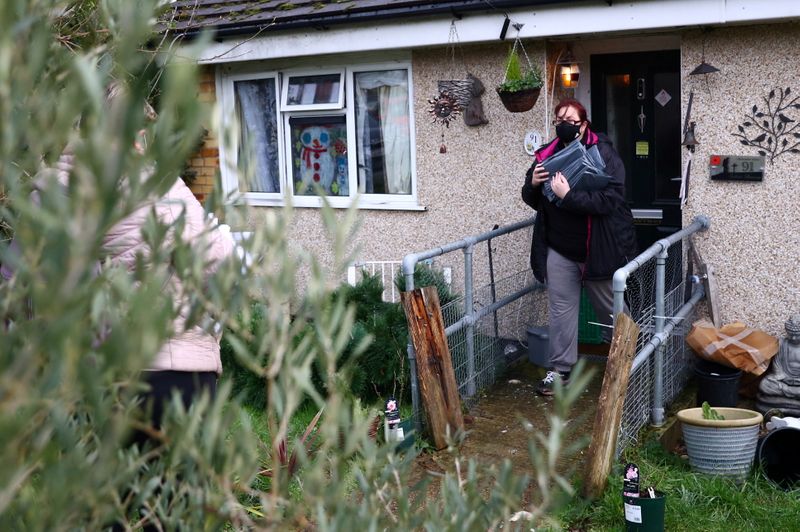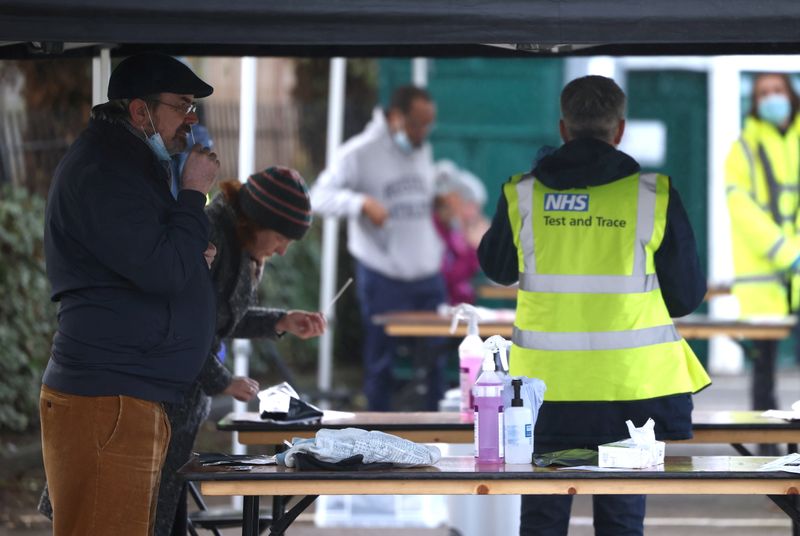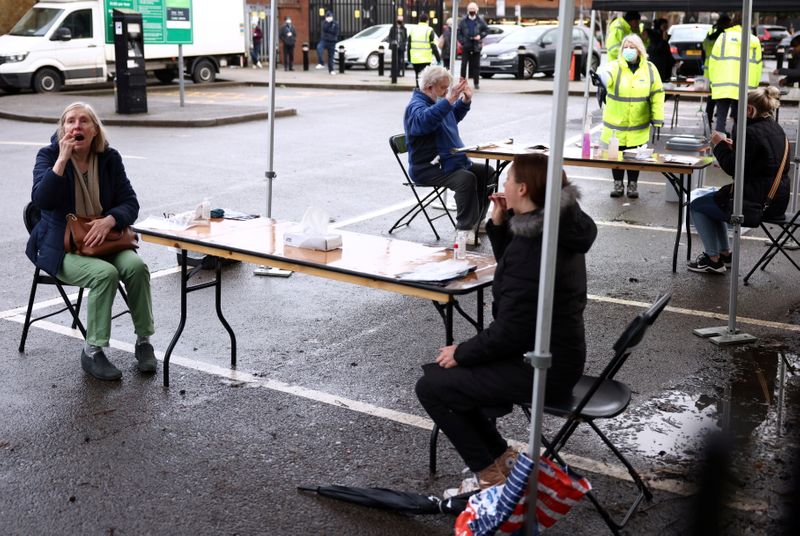WOKING, England (Reuters) – Volunteers and police officers in several parts of England began knocking on people’s doors to hand out COVID-19 testing kits on Tuesday to try to halt the spread of a highly infectious variant that originated in South Africa.
The testing surge was announced by the government on Monday after 11 people in different regions tested positive for the variant without having any links to people who had travelled to South Africa.
In total, Britain has found 105 cases of the variant, of which all but those 11 were people who had either been to South Africa or been in contact with someone who had.
The campaign will involve testing 80,000 people across eight different areas — the ones where the 11 concerning cases were found — regardless of whether they are showing any symptoms.
The aim is to try to break chains of transmission in the community by identifying people with the variant and requiring them to self-isolate.
The eight areas concerned are three parts of London, two in the southeast of England, one in central England, one in the east and another in the northwest.
In the town of Woking, just to the southwest of London, volunteers or police knocked on every door in the designated area to hand out self-testing kits ready to be collected later in the day.
“I think we are all very concerned,” said resident Gwen Cox, 77, as she took her kit. “You should just be very careful.”
England is currently in a strict national lockdown with people under orders to stay at home unless they need to go out for one of a list of government-approved reasons.
QUARANTINE HOTELS AWAITED
Britain has the worst death toll in Europe from COVID-19, with more than 106,000 people having died of the disease within 28 days of a positive test. More than 3.8 million people have had confirmed positive tests since the pandemic began.
The number of new cases is currently levelling out or falling, depending on the area, after a dramatic increase in infections at the end of last year, fuelled by another more transmissible variant first identified in southeast England.
The health service is rolling out a mass vaccination programme, with nearly 9.3 million people having received a first shot, but the government and health officials are concerned that new variants against which vaccines could work less well could undermine that effort.
“It’s still a very perilous stage of this virus and we’ve got these new variants spreading,” education minister Michelle Donelan told Sky on Tuesday.
Scientists have said the South African variant appears to be more transmissible, but there is no evidence that it causes more severe disease. However, several laboratory studies have found that it reduces vaccine and antibody therapy efficacy.
Ministers have faced criticism that they have been too slow to bring in measures to quarantine travellers arriving from overseas who might bring mutations of the virus with them.
A plan to quarantine new arrivals from high-risk countries in hotels has been announced but not yet implemented.
“I know the government is working to achieve this policy and implement it as quickly as possible,” Donelan told Times Radio.
(Additional reporting by Kate Holton, Guy Faulconbridge and Michael Holden; Writing by Estelle Shirbon; Editing by Alison Williams)

